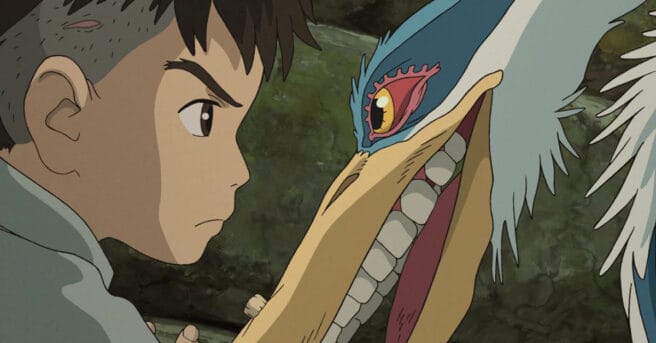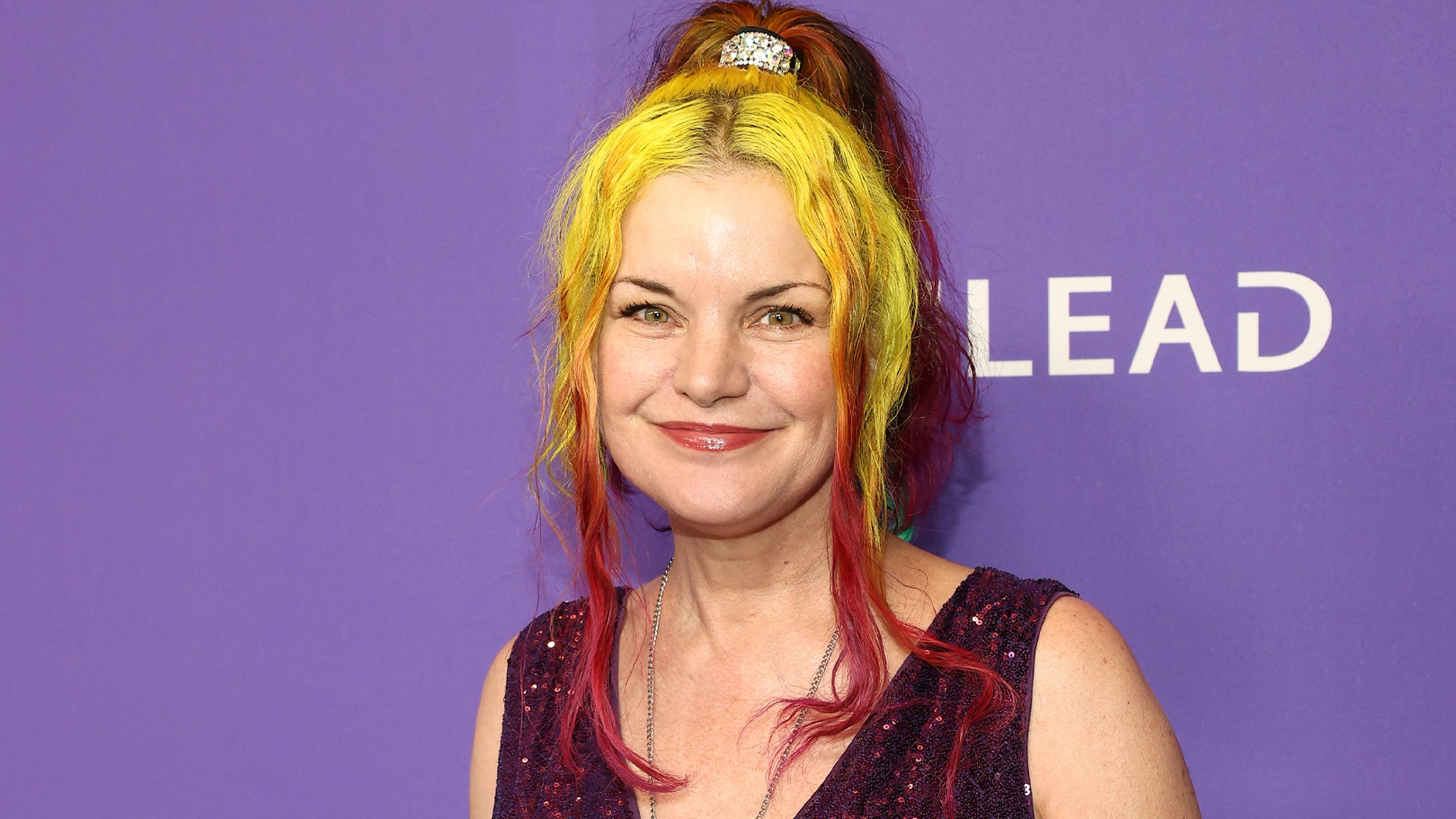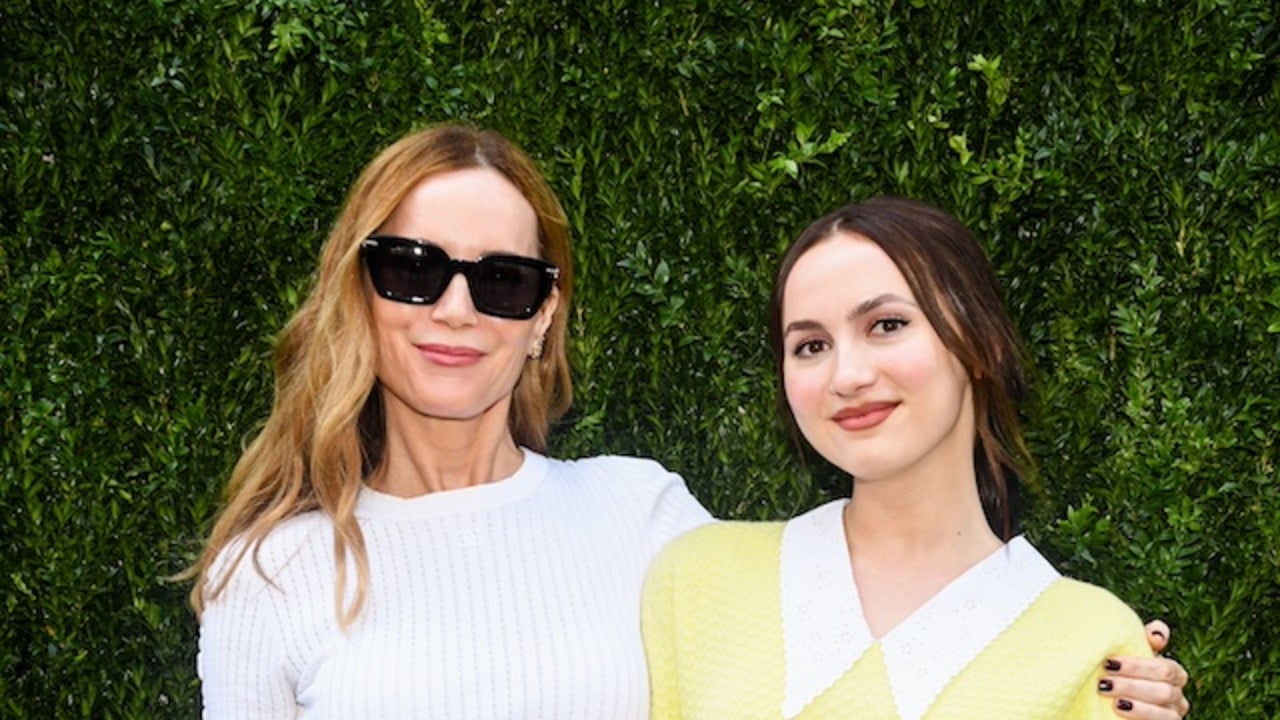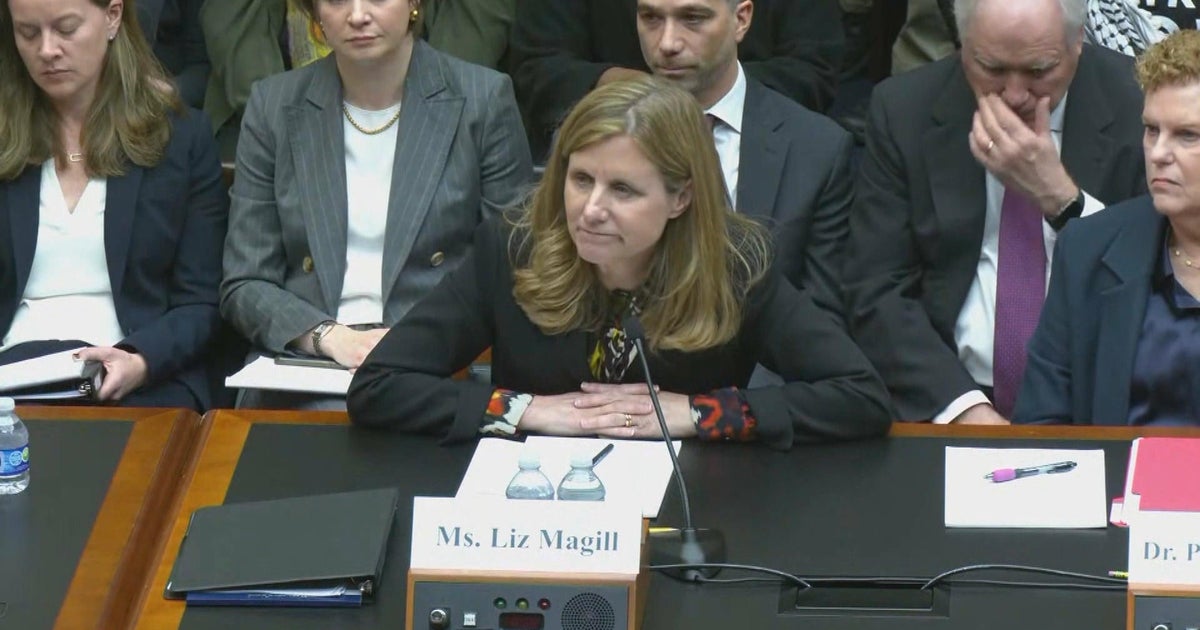[ad_1]
We review Hayao Miyazaki’s The Boy and the Heron again for a second opinion about Studio Ghibli’s latest emotional odyssey into the unknown.
PLOT: After his mother dies during WW2, a young Japanese boy, Mahito Maki (Soma Santoki), is sent to live with his Aunt, Natsuko (Yoshino Kimura), with whom his munitions factory owner father is trying to start a new family. Traumatized by the death of his mother and struggling to accept his circumstances, Mahito finds himself lured into a fantasy world out of time and space by an antagonistic grey Heron (Masaki Suda). As Mahito struggles to make sense of the new macrocosm, he ends a vicious cycle of generational trauma, ultimately making peace with his new surroundings by accepting the winds of change.
REVIEW: As an animation enthusiast, few cinematic pleasures are more anticipated than experiencing another potential masterpiece from the “Godfather of Anime,” Hayao Miyazaki. The co-founder of Studio Ghibli is responsible for some of animation’s greatest treasures, including Spirited Away, Princess Mononoke, My Neighbor Totoro, Howl’s Moving Castle, and more. When Miyazaki said The Boy and the Heron could be his final film – a statement he would quickly retract – expectations for the legendary filmmaker’s swan song became immeasurable. I did everything possible to avoid spoilers leading up to The Boy and the Heron‘s release. Successful as I was, I never imagined watching what is arguably the headiest and most cerebral film of Miyazaki’s career.
The Boy and the Heron took hold of my emotions from the start, thanks to a hypnotic and harrowing opening scene involving the loss of Mahito’s mother, who perished in a World War II hospital fire. As flickering flames, flailing limbs, and fading hope usher Mahito into a world without his mother, the devastation lingers as loss consumes the young man’s heart. Miyazaki, a master of conveying emotion, immediately sets a grim tone before whisking audiences into a world outside of time and space.
Three years after his mother’s death, Mahito and his father, Shoichi, evacuate to the countryside to live with his late mother’s younger sister, Aunt Natsuko, who is pregnant with Mahito’s brother. That’s right. In addition to being unable to process his mother’s death, Mahito’s Aunt, who looks remarkably like her older sister, takes the young man away from the only home he’s ever known. Imagine the therapy bills!
After injuring himself, Mahito investigates a nearby tower at the insistence of a mysterious grey heron (Masaki Suda) circling the property. The tower looms, calling to Mahito to investigate. So, when Mahito witnesses Natsuko venturing into the woods, he and an old maid named Kiriko (Kô Shibasaki) give chase. Determined to bring Natsuko home safely, Mahito enters a forbidden dimension where extended family, flesh-eating parakeets, a younger version of his mother, and his elusive great uncle (Shohei Hino) await.
Mahito begins to make peace with his inner turmoil in this new world. Initially, this strange place presents as the afterlife, a land overpopulated by spirits and would-be souls. As the story continues, the world reveals itself as a malleable reality for Mahito’s great uncle, who’s spent most of his life reshaping the world in his ideal image. Mahito’s mission to help escort Natsuko back to his father – who’s already lost so much – is paramount. Through his odyssey into a strange world, Mahito learns valuable lessons about responsibility, accountability, and letting go of anger.
Long-time Miyazaki collaborator and Japanese composer Joe Hisaishi (Spirited Away, Ponyo, Kiki’s Delivery Service) fills the air with melodic soundscapes throughout the adventure. Hisaishi dedicated five years of his life to the soundtrack, composing dreamy, urgent, and playful orchestral arrangements to guide audience members through a gauntlet of emotions and wonderous settings. All 37 songs help elevate The Boy and the Heron to greater heights by creating a sensation of wonderment, beguiling, and clarity of reason.
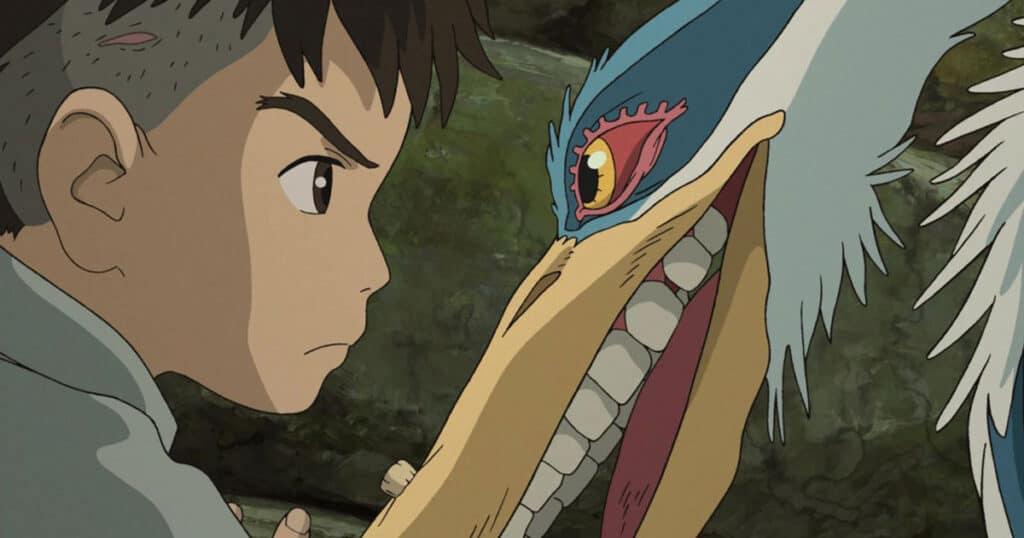
Earlier, I described The Boy and the Heron as one of Miyazaki’s most cerebral films, and I stand by that remark. Watching the film, I became lost in its themes, spellbinding animation, and layered storytelling. In addition to tackling feelings of loss, Miyazaki’s story questions loyalty toward a higher power, relinquishing control over what may come, and accepting that it’s not on us to make a better world but instead to take the world we live in and try to make it the best we can. In other words, by improving ourselves, we bring something better to the world we’ve got.
A part of me wants to dive head-long into specifics for the film’s finale, but I’ll spare you my “dropping acid by campfire light” ramblings in favor of wapping my thoughts in a timely fashion. If there’s one thing I can ding The Boy and the Heron for, I felt the conclusion to the story was too abrupt. After such an immersive, soul-searching journey, I could have used more of a comedown from the experience. I reserve the right to change my mind upon additional viewings (I’m incredibly excited to check out the English-language adaptation) and recognize that Miyazaki is nothing if not deliberate about when and where he leaves his audience after giving them the gift of another life-affirming animated feature. Still, when the credits started rolling, I felt yanked off my cloud rather than being gently placed back in my reality. Give us a chance to catch our breath, Miyazaki!
Thankfully, The Boy and the Heron is the type of film that inspires prolonged conversation after the end credits finish rolling. As my partner and I played Diablo IV, we dissected the film’s characters, themes, and possibilities piece by piece. For me, that’s the mark of another banger from Hayao Miyazaki and his fantastic team at Studio Ghibli. I’d even say The Boy and the Heron ranks among my top three favorite Ghibli films, alongside Princess Mononoke and Spirited Away. The Boy and the Heron is a beautiful, frequently trippy tribute to the act of honoring the memory of a loved one and forging a new path that begins with healing. Few movies captivate me, as The Boy and the Heron did on my first watch. I anticipate revisiting this masterpiece in years to come and finding new comfort in its bold sense of mystery and adventure with each viewing.
[ad_2]
Source link

